Emergency Prepping with Honey Bees
Whether you flinch or not every time you hear buzzing in your ear, bees and humans are more connected than you might think. In fact, scientists believe that humans could not survive for long without these busy little pollinators. Albert Einstein himself once said that humanity would be wiped out in as little as 4 years if the honey bee population were ever to die out. Why is that?
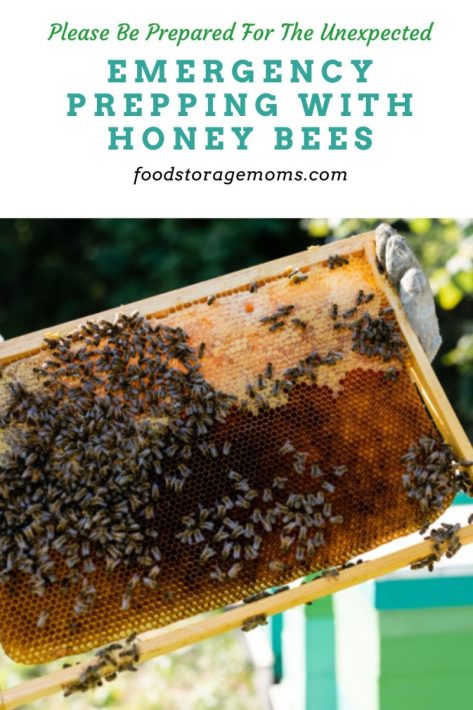
Emergency Prepping with Honey Bees
Truth be told, honey bees are responsible for pollinating 75% of the world’s flowering plants and 35% of the world’s food crops. And without crops, the entire food chain that we as humans depend on would completely deteriorate.
Yep, that means your favorite cut of steak would be much harder to get ahold of as well since livestock need plant foods too. If you’re a prepper, there are several reasons why having honey bees on your property would benefit you greatly. These are a handful of smart ways that you could use honey bees before and after an emergency situation has taken place. Honey bees and emergency preparedness go hand in hand, you just don’t know WHY…yet!
Pollinate Your Garden
As I already mentioned above, bees are excellent pollinators that can greatly improve the quality and success of your garden. With no bees, your vegetable crop quantity and quality could be greatly reduced. So, having a few honey bees on your property would mean an increase in yield and better quality produce for you and your family. You’ll be needing all the success that you can get, so using honey bees for pollinating your garden certainly makes sense. 6 Eye-opening Reasons To Stock Up On Garden Seeds NOW!
Some of your food garden plants may not have flower blooms to attract the bees. That’s why it’s a smart idea to plant beautiful flowering plants near your garden, you and the bees will love it!
Produce Wax & Make Delicious and Healthy Honey
Believe it or not, honey bee colonies can give you a great source of food if a severe disaster hits your location. That’s right! You can use the raw honey and wax they produce to make food for yourself. Not only is this a great source of nutrition, but it can also give you a busy activity to keep your mind off of the panic-inducing situation.
Many people don’t realize it, but most honey you purchase in your grocery store has been pasteurized. This is done in an effort to make the honey look more appetizing based on color and texture, kill the yeast that often forms, eliminate crystals, and make it more shelf-stable for storage. For the most healthy honey consider buying and using it in raw form from a reliable source. Of course, if you have your own hives, you know exactly what’s in the honey you harvest.
As a natural sweetener in the ingredients, honey has a number of healthy attributes. With 64 calories per tablespoon and an abundance of carbohydrates, it may be considered a high-calorie food. But remember, it can sweeten many of your homemade food items without using a bunch. Raw honey has measurable amounts of vitamins and minerals in the form of calcium, magnesium, manganese, zinc, riboflavin, niacin, phosphorous, and potassium.
Other Health Benefits of Raw Honey:
Raw honey has various plant chemicals that will act as antioxidants like many fruits and veggies. These antioxidants will help protect the cells in your body from possible damage caused by free radicals.
There could also be some health benefits for the brain due to the polyphenols found in honey. Studies have shown that these chemicals can fight off inflammation in regions of the brain like the hippocampus, the area of the brain responsible for memory functions.
Natural Home Remedies
Emergency preppers can also benefit from honey bees because the honey that they produce can be used as a natural antibiotic and antimycotic. With these kinds of healing properties, honey can help soothe sunburns, bug bites, and small wounds. Honey may even help with alleviating a sore throat and coughs as an old-time remedy. Beeswax is also used for making chapstick to protect your lips from the sun. In emergency situations, you’ll already have natural home remedies thanks to the honey bee swarms that you said yes to!
Check with your doctor before using honey directly, but it has been shown to have some antimicrobial attributes that could come in handy as a home remedy. It also has been shown in studies to have antifungal and antibacterial properties, making it all the more beneficial to have available.
If you’re having some tummy issues, raw honey has been used by many people as a prebiotic to help nourish the good bacteria in our intestinal tract. Raw honey MAY have some benefits in reducing the risk of bacteria that causes stomach ulcers in the average person.
Wax for Making Candles
This one is pretty self-explanatory, but it’s something that many preppers often overlook. If you’re ever dealing with a long-term emergency situation, there may come a point where your flashlights and lanterns run out of batteries. But with beeswax, you can make candles to continue to provide you with lighting at night. And once the emergency has passed, you may have even found yourself a new hobby you enjoy.
Barter with Honey
If one day you were to wake up and the world had turned upside down with civil unrest, you have an asset. People would definitely be looking for a sweet pick-me-up to help them through difficult situations and provide needed nourishment. Honey would be a great luxury for you to have that you would be able to trade with. Trust me, people would be willing to barter with you for just about anything simply for a single sweet taste of honey on their lips again. Honey production is important as a prepper because you can use this to barter with other people. Honey Is One Of The Most Healthy Natural Foods Around
Stop Using Harmful Pesticides
Even if you’re not on board with adding bees to your property like I’m suggesting, you can do one simple thing of benefit. The very least that you can do is make sure that you aren’t using any harmful pesticides in your yard simply to get the lawn and other plants that you’re hoping for.
Doing so can cause absolute chaos to your neighborhood’s ecosystem and is one of the main reasons why the world’s bee population is rapidly disappearing in the first place. Feel free to contact a certified pest control operator or a local nursery to get their ideas about safe pest control. The best management practices can change over time, so make sure you’re up to date with any additional information on pesticides and bees.
Are there any downsides to having bees on your property?
What you’re allowed to do on your property is very different from state to state, city to city, and within various communities. There may be some restrictions to raising bees within city limits or within your very own HOA. Be sure to check before you invest in the equipment and materials necessary to have your own bees. Of course, there are also some issues if this is just a hobby or if you plan to make it a small business. Do your homework and make sure you understand what’s required to pass muster.
The other obvious issue is the possible challenges of having a significant number of bees present where humans are living. If you or a family member have a tendency to allergies, you may find it dangerous to subject anyone close by to a possible allergic reaction. Bee attacks and related bee stings can actually prove to be fatal for some individuals! You can’t fool around if someone has a reaction even if you’re the one that does the majority of the work with the bees and hives.
Some symptoms to look for if someone has been subjected to bee stings include, but may not be limited to, feeling dizzy or fainting, skin hives with itching and rashes, or pale skin. They may also have difficulty with breathing, the pulse is very weak and/or rapid, swelling of the throat and tongue, experiencing diarrhea, nausea and vomiting, and loss of consciousness.
Be prepared to get medical attention from emergency personnel as soon as possible. A worst-case scenario may prove to be the total bee removal of your hives.
Other possible issues with bees and their honey:
Some raw honey can carry harmful bacteria (Clostridium botulinum) which is very dangerous for babies. The CDC suggests we steer clear of serving raw honey to kids less than a year old.
Also, honey bees and their hives have been known to become invested with Varro mites, a very small red-brown colored parasite that is visible on the bees’ bodies. They can attack adult bees, but are more common and reproduce their young on the larvae and pupae in the brood of bees. These mites can cause the bees to develop malformation and overall weakening of the bees. This would adversely affect their ability to gather nectar and make honey, your whole goal for having the bees. The mites can also carry viruses that can kill the bees.
The shelf-life of honey is long if properly stored. Keep your honey in air-tight containers where it’s cool, dark, and away from direct sunlight. The longer you keep the honey the more prone it is to go through some changes. You may notice a darker color, thicker texture, having a slightly different taste, and it usually begins to show signs of crystallization. None of these attributes is a health risk as long as the honey hasn’t become fermented or become contaminated from contact with open air.
You can make your honey like new by heating it up and stirring it to dissolve the crystals.
More Honey Tips
- Easy Honey-Baked Chicken Tenderloin
- Make Your Own Honey-Whipped Hand Cream
- Honey Is One Of The Most Healthy Natural Foods Around
- How To Use Honey-The Amazing Health Benefits
Final Word
Despite their intimidating stingers, honey bees were never supposed to be something that you and I dread every time we go outside. They were put here on Earth to help with sustaining us and so the circle of life remained in perfect balance. The honey that they produce not only feeds us but can help preppers with natural remedies during an actual emergency situation. Can you think of any other ways the honey bee can assist a prepper to get ready for any type of emergency situation? I’d love to hear your thoughts in the comments section below! May God Bless this World, Linda
Copyright Images: Beekeeper on Apiary Depositphotos_428628508_S, Beekeeper With Protective Gloves Depositphotos_502855980_S

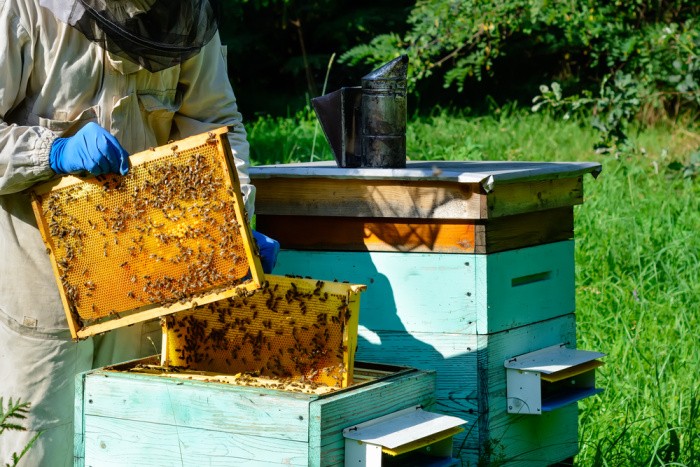

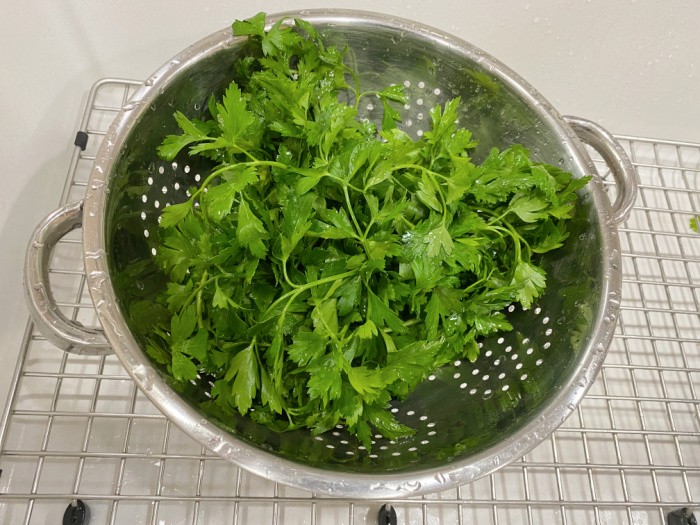

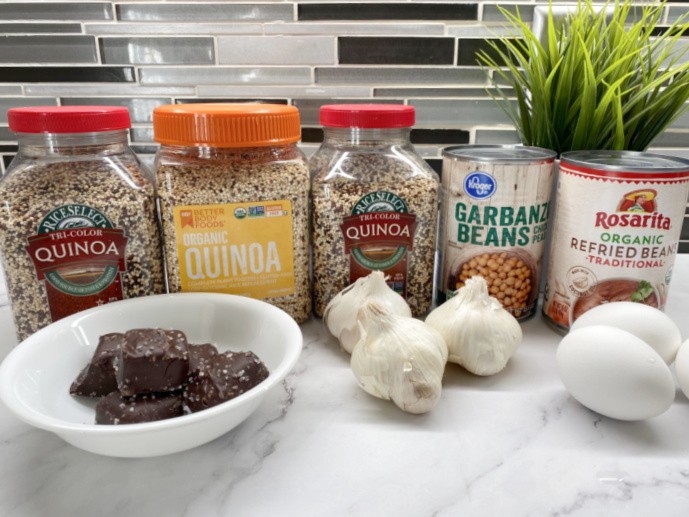


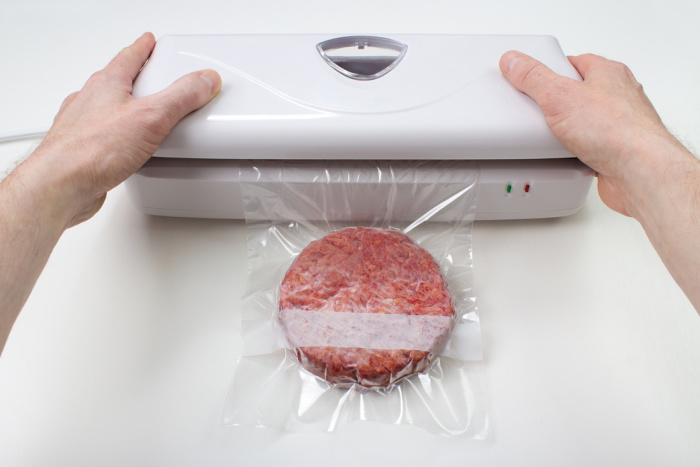
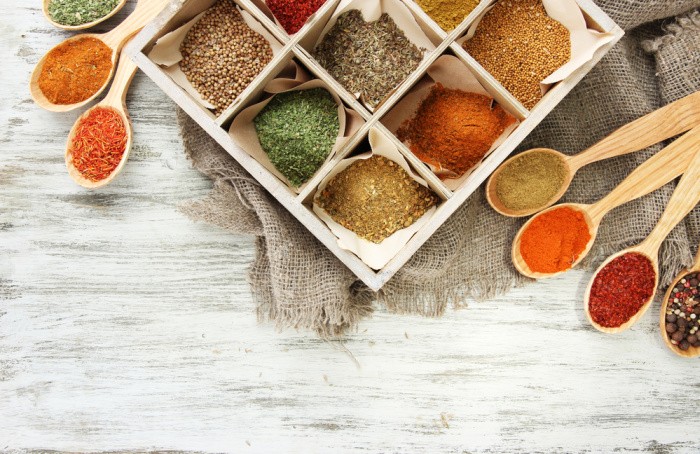
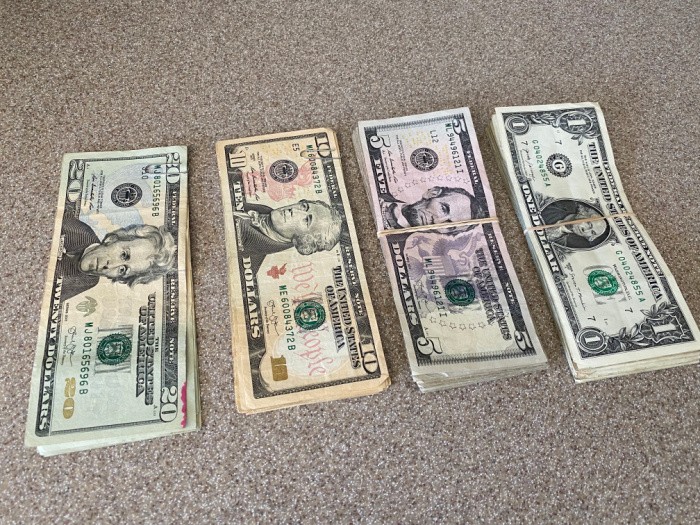


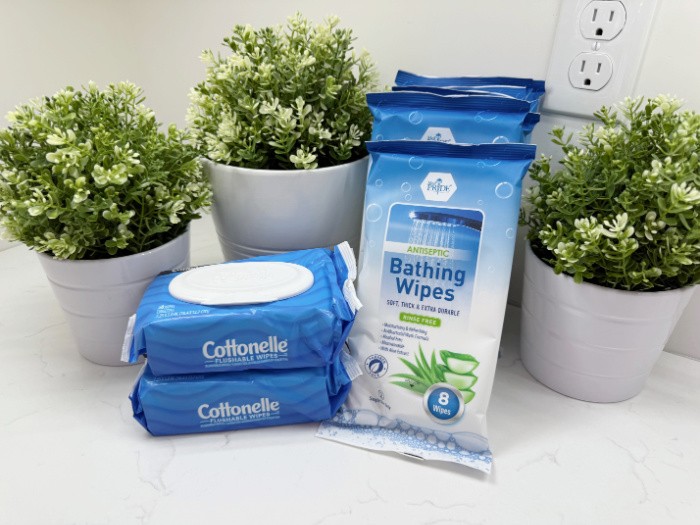





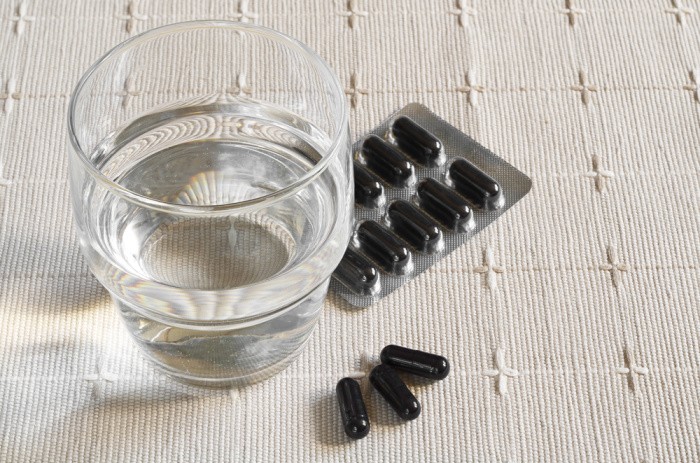
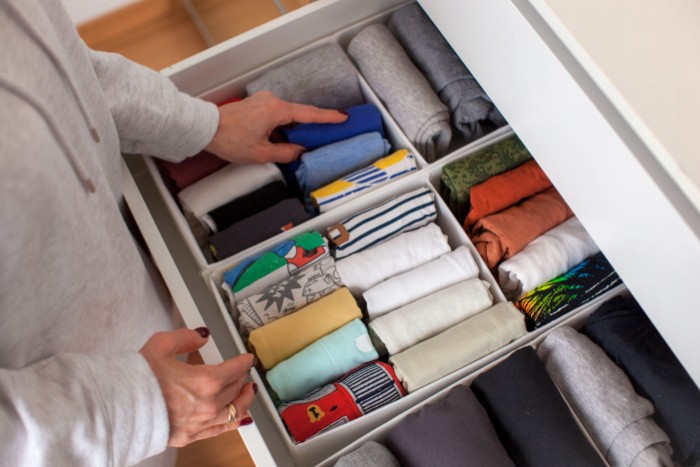

This is probably our next venture. Can’t do it at the house cause wife’s allergic to the stings. Looking at niece’s homestead cause they are interested.
I’ve got a buddy that does it. I helped him before. First time he smoked them then slapped that comb down to shake them off I bout panicked lol . I’m like “why would you do that, they are gonna be mad” he just laughed and kept on working. It was all good but it’s contradictory to my survival instincts lol
Hi Matt, this is so funny, because i was going to email you and see if you would be interested in beekeeping! I would panic too! I see others producing beautiful honey, it would be a great skill to learn. Plus, you can sell the honey. Great comment, Linda
Yeah my buddy even has a manual centrifuge for collecting the honey from the racks in case of grid down.
Only thing that bothers me is some other friends had it going but the hive up and left one day. It ain’t like other critters in which ya build a good fence you keep them.
I can’t stretch barbed wire tight enough to keep that from happening lol
Hi Matt, you are so right about containing them. LOL! I have heard about stolen beehives here in Utah. People are getting desperate if they start to steal beehives. I wonder what makes them up and leave on their own, yikes! Life never surprises me anymore. Linda
Thanks for reminding everyone about how critical honey bees and other small pollinators are! We have several hives and are connected with a number of local beekeepers as well. You can substitute honey for white sugar in a lot of ways, but it takes some getting used to the darker, richer taste. It takes a bee its entire lifetime to make about one-eighth of a teaspoon’s worth of honey. Most live 30 to 45 days, so the Queen lays eggs around the clock, and the nursery bees continually nurture and raise new workers.
We have educated our immediate neighbors about the bees, and they are careful not to spray a lot of chemicals, but not all in this neighborhood are as conscientious. You are right that honey stores a long time. It has almost no age limit if stored in clean airtight containers not exposed to direct sunlight, and kept at room temperature. Think I once read about some found in an ancient shipwreck that was still edible after nearly 1000 years, but that was an exceptional case.
Raw honey has the optimum health benefits. If you have seasonal allergies due to local pollens, buy local raw honey, eat a teaspoon a day to build up natural resistance. Never warm your jar in a microwave though, as the radiation destroys beneficial enzymes and nutrients. None of the beekeepers here pasteurize their honey, but just strain it into bottles. It’s great stuff! Bees are certainly a critical component for long-term survival, for individuals and for the planet.
HI Terry, great comment, my friend. I worked with Cox’s Honey in Shelley, Idaho for a few years through my blog. They sell raw honey and creamed honey, oh my gosh, it’s so good! It’s interesting that a bee works its entire life to produce one teaspoon. Boy, does that ever make you realize how important bees are to our survival. I believe honey stores forever if kept in glass containers or at least where I live. I found the plastic half gallons of honey started to crack, then leaked. The plastic containers are good for a year or two but I transfer from the plastic to glass containers as soon as possible. Quarts work best for me because I can set them outside and let the sunshine “melt” the crystalized honey. I LOVE your comment, thank you, Linda
Just another thought to anyone interested in keeping bees. Find your local beekeeping association and learn the basics first. Bees are a form of livestock in many ways, although always free-ranging wildlife at the same time. There is time and effort involved, and never at times that are convenient for us humans. Some hives are extremely tolerant of human activity nearby, while others are not. Bees and keepers have to get acclimated to each other. Once you’re settled into a rhythm, though, hives don’t usually require daily attention. Bees are dilligent about housekeeping. Just stay aware of what is normal for each hive, so that you notice anything odd before it’s time for major maintenance or honey extraction. Beekeeping is highly therapeutic and beneficial when done with common sense and respect for the bees. The time is never wasted.
Hi Terry, your comment will inspire so many to think about beekeeping, I LOVE it! Linda
There is a local guy here that occasionally posts on the Nextdoor app about what to do if you find a bee swarm (call him) and some other were asking him about getting into beekeeping. His first suggestion is to find out if you and any family members are allergic to stings. His second suggestion is to find a mentor beekeeper and work with her/him for at least a year to find out if you like it and can keep going alone. He says it is an expensive hobby, where as we are looking at it from a survival point, and you want to know what you are doing before investing money. My great-grandfather kept bees and there was nothing better than his spring sourwood honey.
My daughter and her family may be moving in with us this fall for about a year so they can sell their current house and buy some land to build a self-sustainable homestead. She wants to keep bees when they do. When they move in with us, I’m going to take her to a local beekeeper’s club and hope she can find a mentor there so she can learn about beekeeping while they are living here. No better time than when Grandma and Grandpa are around to help babysit the 2 year old.
Hi Topaz, oh two years olds are the cutest age ever! How exciting that you will see you grandchild more!! They grow up so fast. Then your daughter can learn all about beekeeping and see if she really wants to do it. I looked into it years ago and the cost was so expensive to get started I didn’t have funds to do it right. I too felt it was a very expensive hobby for me any way. Linda